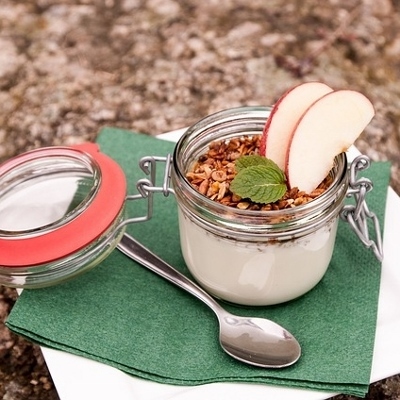 I recently heard it said that, “soft drinks are the cigarette of the future.† I confess…I too have a daily habit of a late afternoon Dr. Pepper. It has to be fountain, just the exact amount of ice, skinny straw, not the fat ones at like 7-11. But by the day, I’m becoming convinced that I need to find another, healthier late afternoon habit.
I recently heard it said that, “soft drinks are the cigarette of the future.† I confess…I too have a daily habit of a late afternoon Dr. Pepper. It has to be fountain, just the exact amount of ice, skinny straw, not the fat ones at like 7-11. But by the day, I’m becoming convinced that I need to find another, healthier late afternoon habit.
The bottom line is this: diet or regular, there is not one thing in soda pop that has any nutritional value, nothing. Soda is the epitome of the term “empty calories.† Look at the label, it’s all made up of chemicals that I can’t pronounce, let alone understand, except for sugar and caffeine. The caffeine in most popular soft drinks it is a nerve stimulant that can cause headaches, hyperactivity, and a crash, same as sugar. And the list of potential harmful effects from artificial sweeteners is long, and a topic for another article. I will mention, however, that there is much new evidence that people who consume diet sodas tend to have a harder time with weight loss than those who don’t.  According to a recent issue of Science Daily, researchers have laboratory evidence that the widespread use of no-calorie sweeteners may actually make it harder for people to control their intake and body weight.
I’m a physically active adult, so I have never worried about the calories in Dr. Pepper. I like the taste much better than the diet variations. But people who are less active, namely kids and teens, can’t afford all those empty calories. They take up valuable stomach space that should be taken by whole, natural foods – foods that help a body develop, function, and grow properly. “The easy access of sugary beverages and foods from home to school and everywhere in between has compromised the health of teens’ teeth, and helped fuel the national obesity epidemic,” added Julie Barna, spokesperson for the Academy of General Dentistry.
Other research shows that drinking carbonated beverages seems to be one of the most significant causes of increased cavities and obesity for today’s teenagers. And as younger children become addicted to the caffeine and sugar contained in many fizzy drinks, the problems will only increase. Being overweight puts adolescents at significant health risks, including increased incidence of hypertension and elevated cholesterol, leading to heart disease, type II diabetes, and osteoporosis.
Another issue, the phosphoric acid in most regular and diet cola drinks limits calcium absorption, with a direct influence on bone density, report the researchers. They say that by the age of 16, girls have accumulated 90 to 97 percent of their bone mass making adequate calcium intake vital, yet statistics in the US and Europe show that many girls are not receiving enough calcium through their diets. Some research has linked soft drink consumption to bone fractures in teenage girls.
For a thorough summary of all the reasons we should be cutting back on our consumption of carbonated beverages, check out “Soft Drinks, America’s Other Drinking Problemâ€, by Dr. Judith Valentine, PhD
.
Please visit my website for more fitness, nutrition, and yoga tips: www.DeniseDruce.com.





